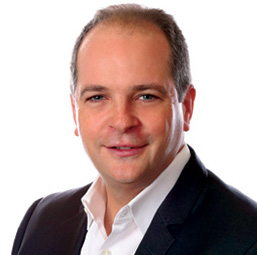ResMed signals possible end to CPAP crunch

By Liz Beaulieu, Editor
Updated 11:50 AM CST, Fri January 27, 2023
 SAN DIEGO – ResMed was able to take its AirSense 10 fully connected CPAP device off allocation in the U.S. market in January, CEO Mick Farrell said during a conference call to discuss its financial results for the second quarter fiscal year 2023.
SAN DIEGO – ResMed was able to take its AirSense 10 fully connected CPAP device off allocation in the U.S. market in January, CEO Mick Farrell said during a conference call to discuss its financial results for the second quarter fiscal year 2023.
Furthermore, the company expects to be able to meet all demand before the end of this calendar year, he said, paving the way for providers to get patients on therapy in days or weeks vs. months at the height of a supply crisis created by a lack of semiconductor chips and a competitor’s recall.
“That tells you our confidence in our ability to meet that need,” he said. “We're laser-focused on that humanitarian emergency of patients waiting too long for therapy. This is a case of life and death; we've got the data to show that. We want the path to therapy to be expedited.”
Farrell said ResMed expects to see steady, ongoing incremental revenue growth for CPAP devices in the third and fourth quarters of its fiscal year 2023, building off a whopping 41% increase in sales for devices in the second quarter.
ResMed has implemented a “very complex supply logistics program,” which included re-engineering the AirSense 10 to use a chip that was less constrained, and it has significantly ramped up production to pump up supply of CPAP devices, Farrell said.
“The good news is, we are seeing supply of those rate-limited semiconductors for communications,” he said. “The 3G, 4G, 5G chips are starting to see supply come back. The microprocessors, the next rate-limited step, are starting to increase, and so we're seeing our path through this.”
As supply continues to improve and ResMed better meets excess patient demand, the company will “turn on the knob” on generating new demand, something that’s been on hold for the last 18 months, Farrell said.
“I'm looking at our models in Australia, New Zealand, Korea, Japan, Singapore, U.K. and beyond, where we have these omnichannel markets available to contact consumers directly and get them into the funnel,” he said. “And here in the U.S., we have direct models and also our joint venture with Verily and Primasun that we've done some really good demand gen tests (with) and a number of cities are just waiting for me to fire the starting gun. And we're getting very close to firing that starting gun.”
What does all of this mean for ResMed’s AirSense 10 card-to-cloud device, which it launched in 2022 as a workaround for the lack of chips? Farrell said the company was “working our way through” the inventory of these devices and that once patients on these devices are eligible for new devices in three to five years, they’ll transition to AirSense 10 or Air Sense 11 connected devices.
“We've had some pretty good success in showing that ResMed isn't just going to stick to a strategy,” he said. “If we need to pivot tactically to take care of patients, we'll do it and we'll take care of them long-term. But there will be a bolus of patients, I think, jumping at the front of re-PAP in a couple of years who want to get the latest and greatest technology and some on consumer pay markets might go quicker.”
- Read about ResMed’s pivot to card-to-cloud devices at the height of the CPAP supply crisis.
Comments